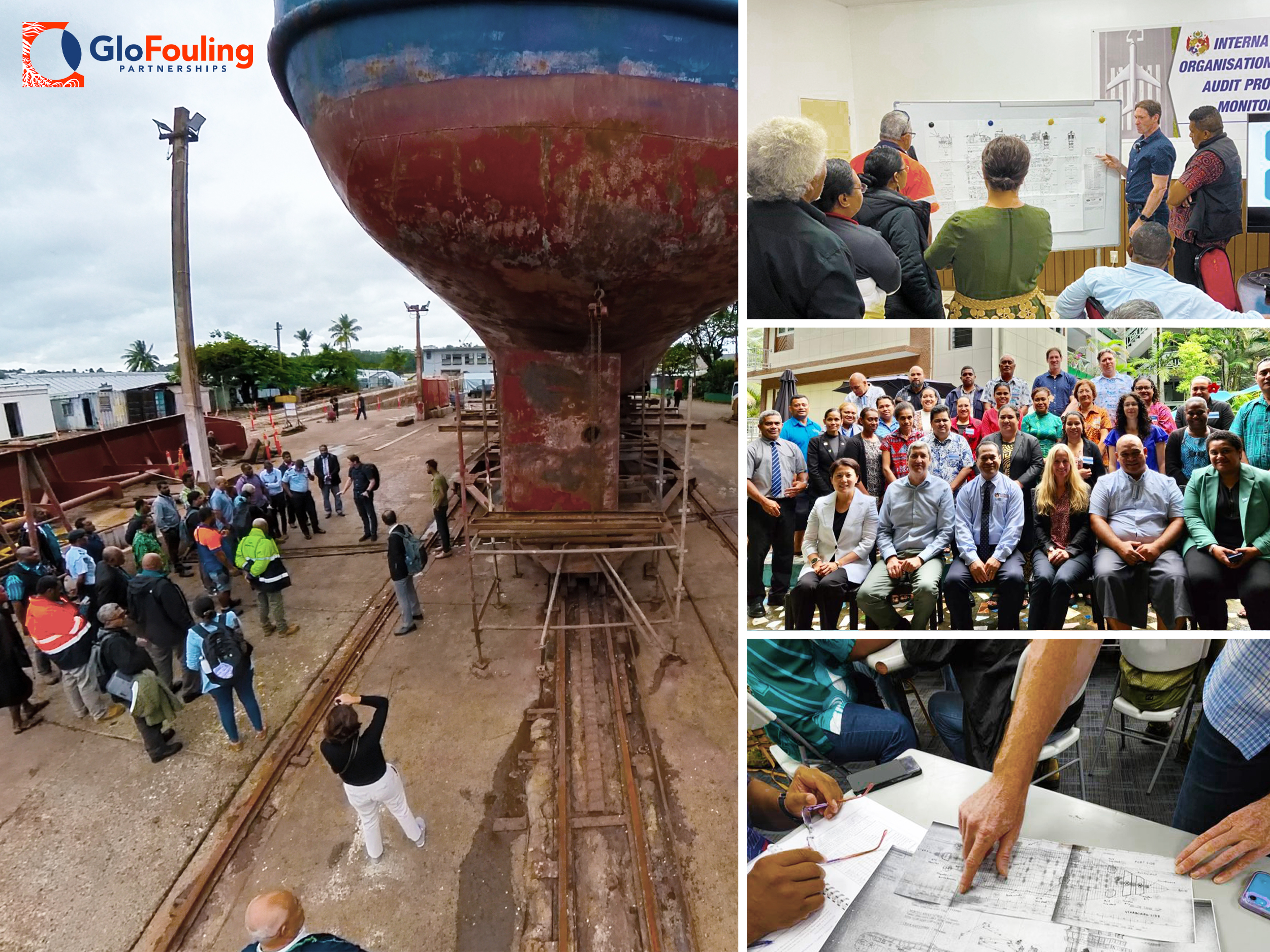Pacific Island countries have been stepping up their efforts to improve biofouling management, which is crucial in order to minimize introductions of invasive aquatic species via ships' hulls.
The spread of invasive species is now recognized as one of the greatest threats to the ecological and the economic well-being of the planet. These species can damage biodiversity and cause an increase of economic costs for maritime and coastal industries.
Representatives from all Pacific Island countries met in Suva, Fiji (17-18 July), to define and discuss an action plan that would lead to a harmonized implementation of the IMO Biofouling Guidelines. The Guidelines provide a globally consistent approach to the management of biofouling. One of the goals of the meeting was to coordinate the numerous actions in the field of marine biosecurity that are taking place in the region. Participants were informed about initiatives on invasive species led by the Secretariat of the Pacific Regional Environment Programme (SPREP) and the Pacific Community, the Pacific islands Marine bioinvasions Alert Network (IOC-UNESCO PacMAN) project and some insights into New Zealand's updated biofouling regulations.
A week earlier (13-14 July), the GloFouling Partnerships project delivered in Nuku'alofa, Tonga, its new training package focused on the development and assessment of biofouling management plans and record books, the main tool for a proactive approach to minimize the accumulation of biofouling on ships' hulls.
The same course was delivered in Fiji (19-20 July) with over 40 participants representing a broad range of stakeholders from the country's administration and the shipping industry. The course was complemented with a visit to a drydock slipway to witness some of the crucial aspects related to antifouling coatings and inspecting of a ship's hull.
In the coming months, the training course will be deployed in the other 10 Lead Partnering Countries that are benefiting from IMO's GloFouling initiative.
For more details about the SPREP regional workshop, see here, and to read more information about the training delivered in Tonga and Fiji, see here.
